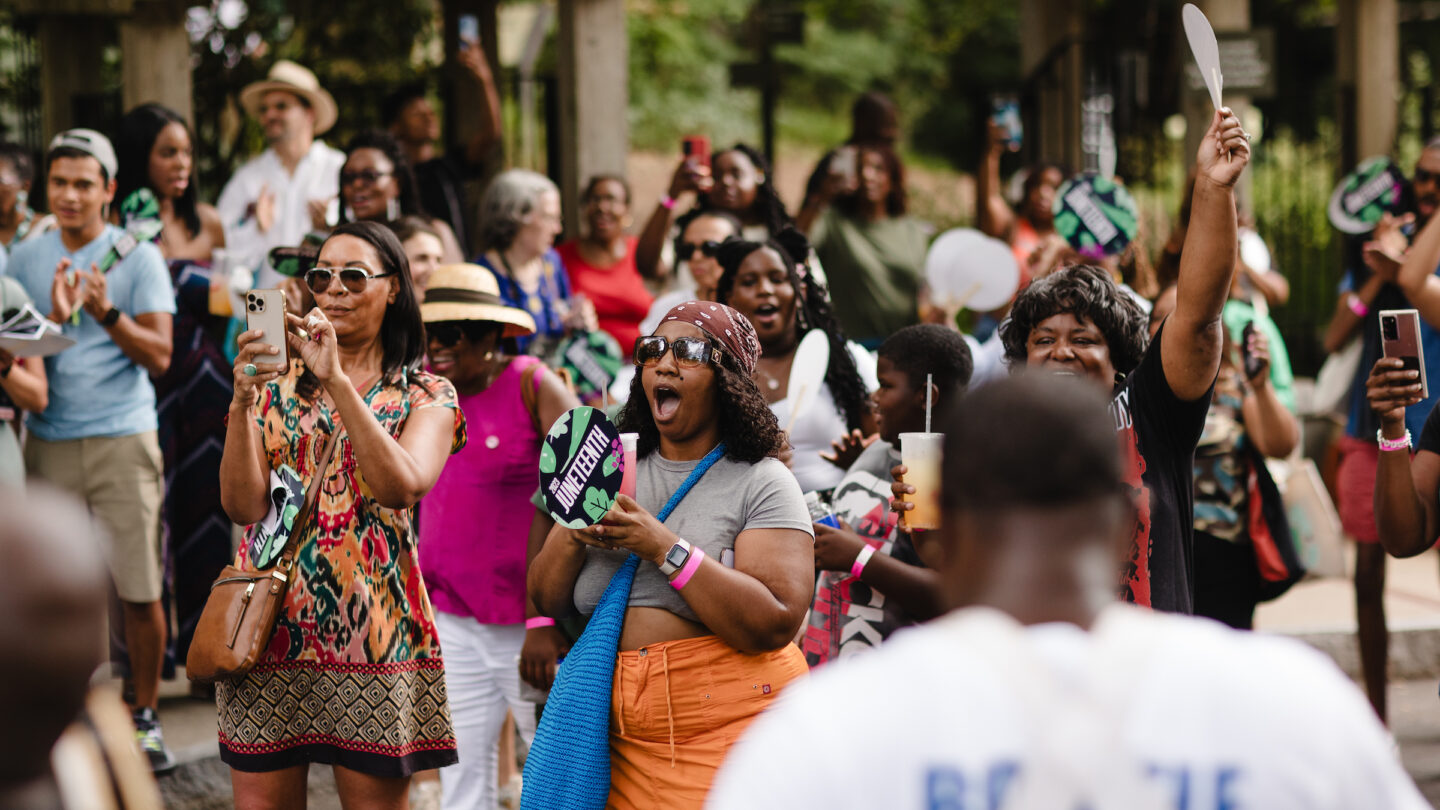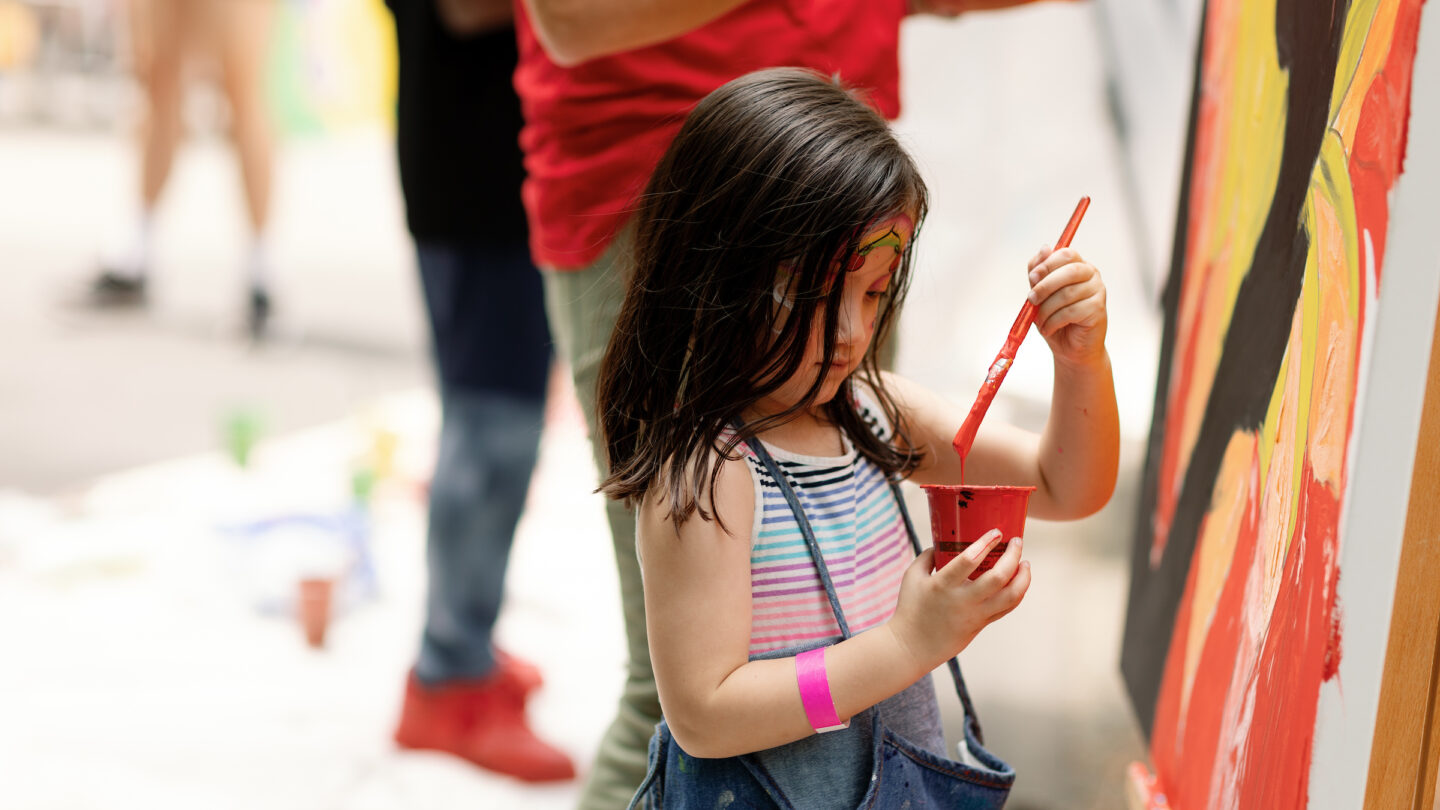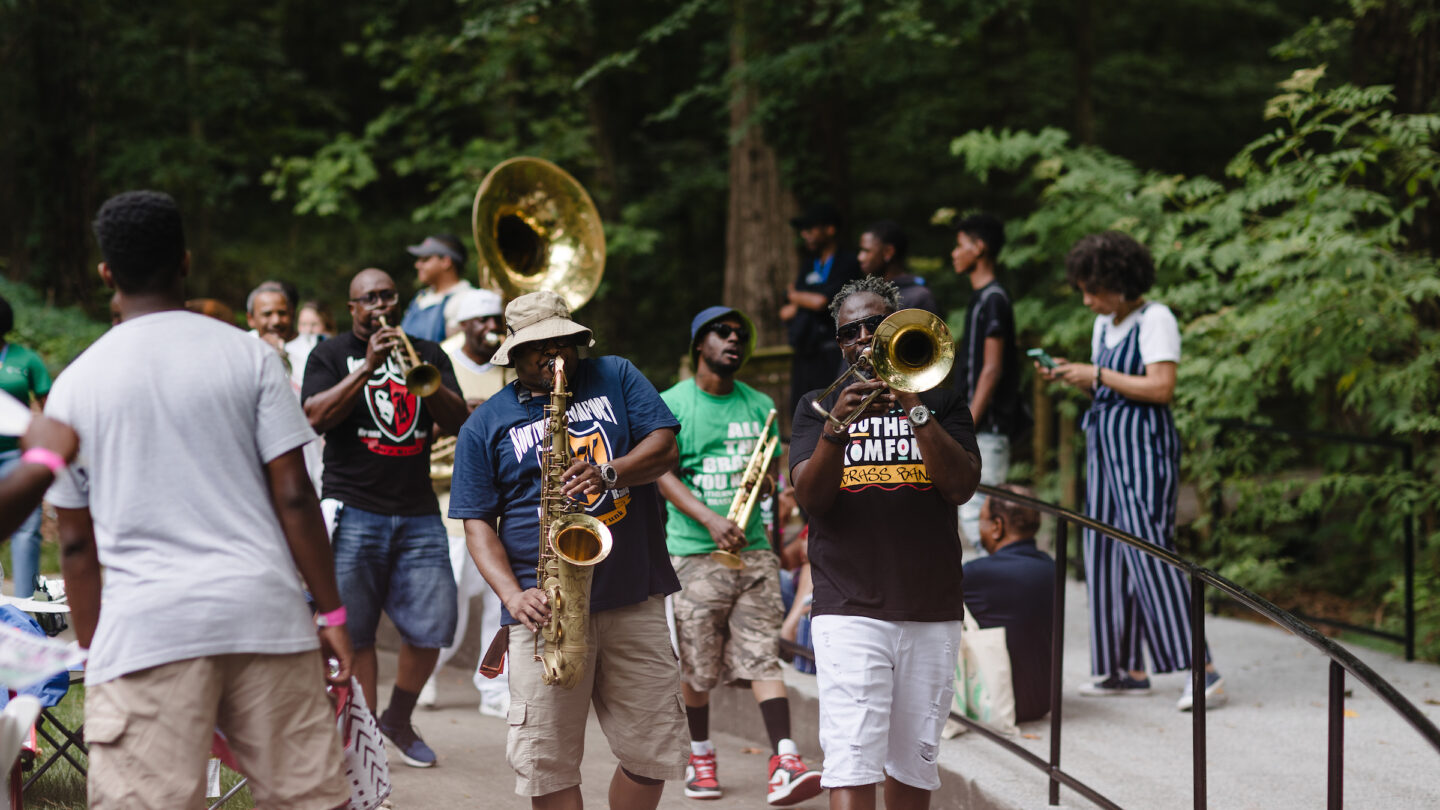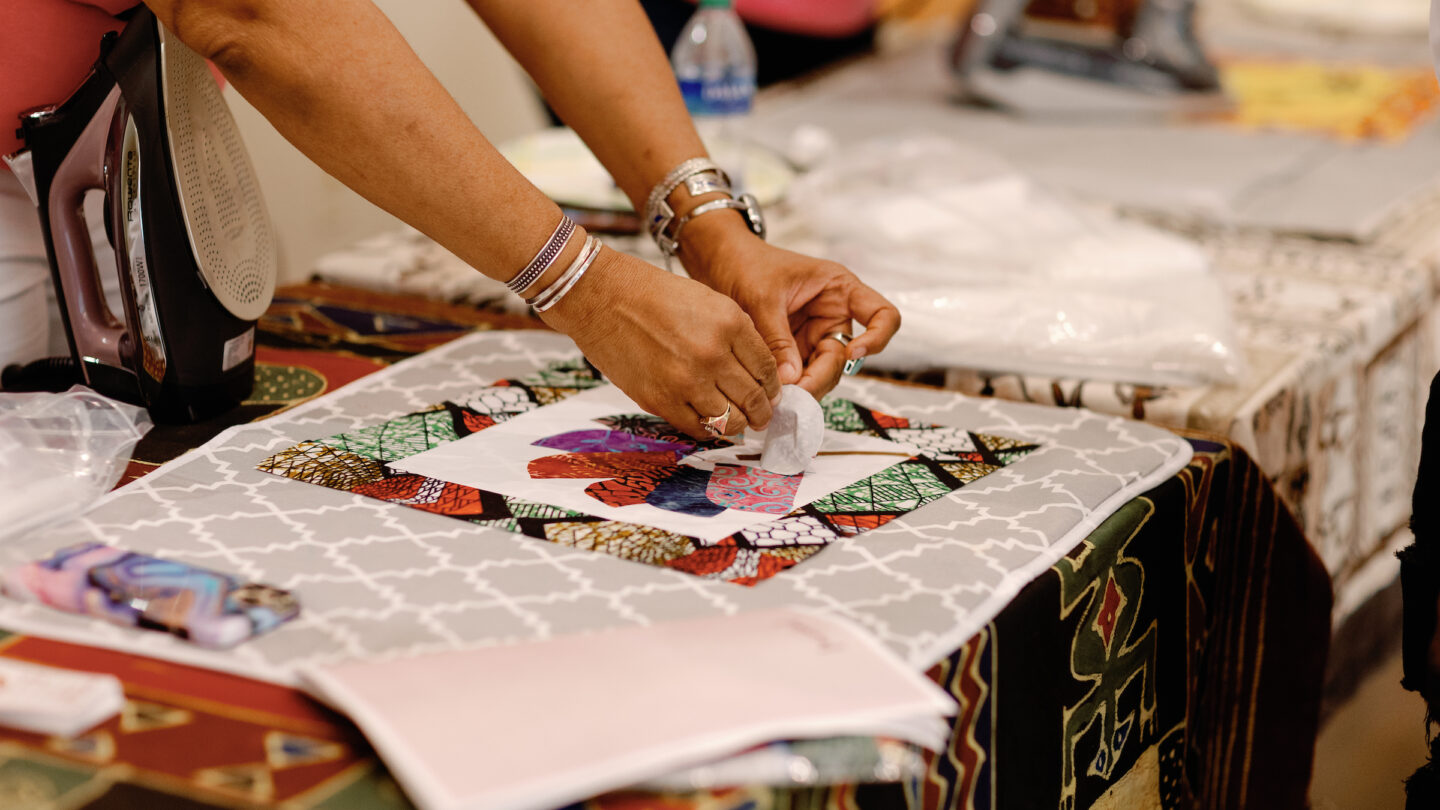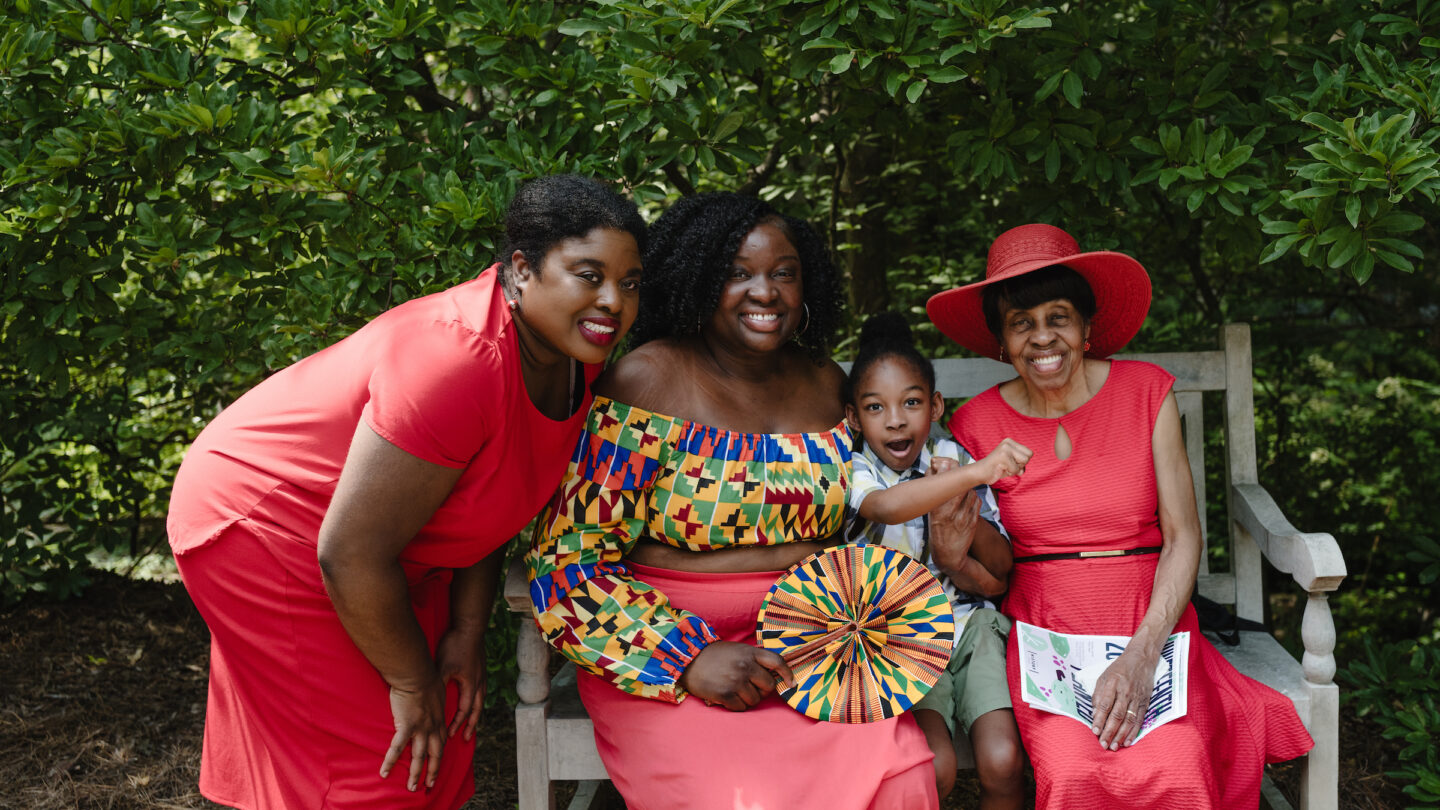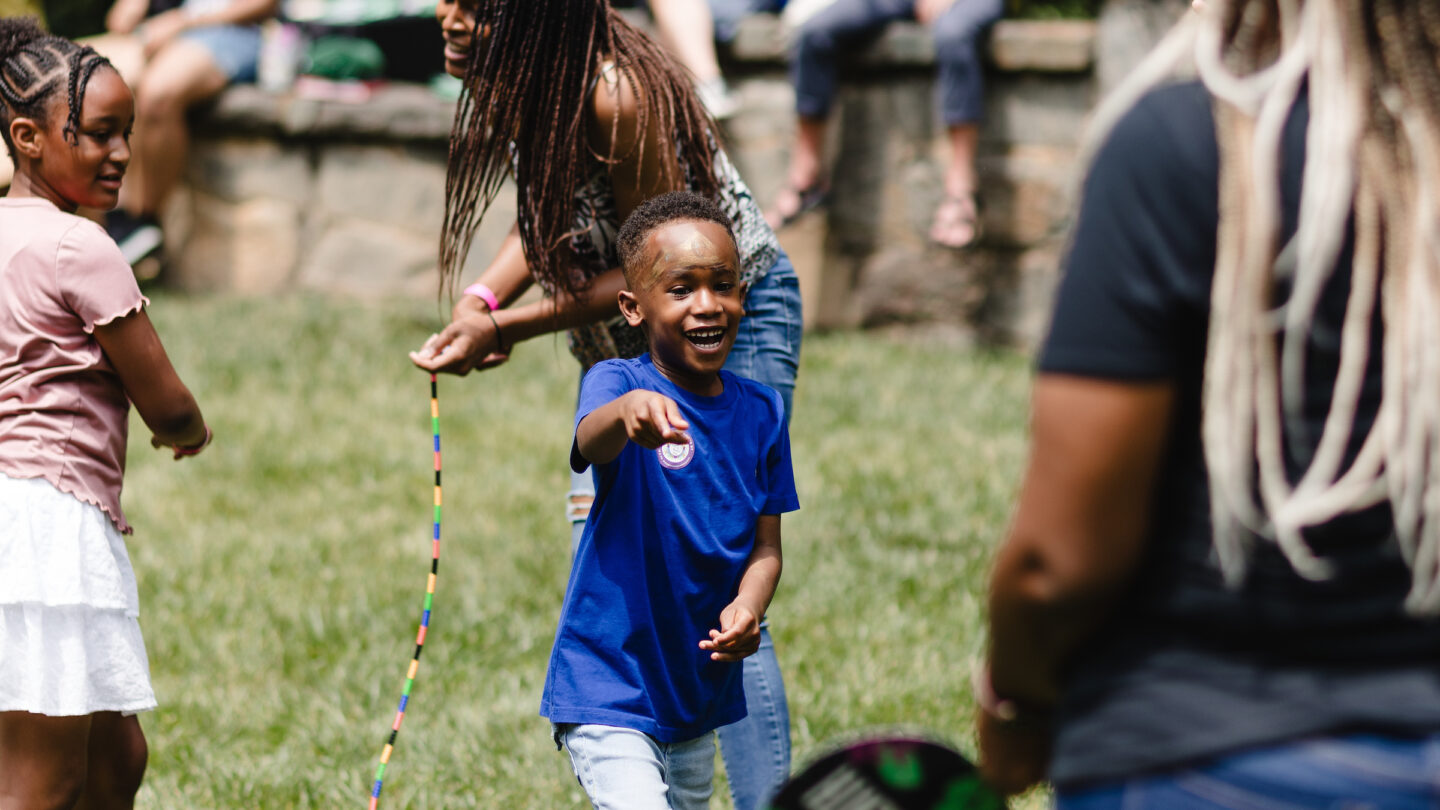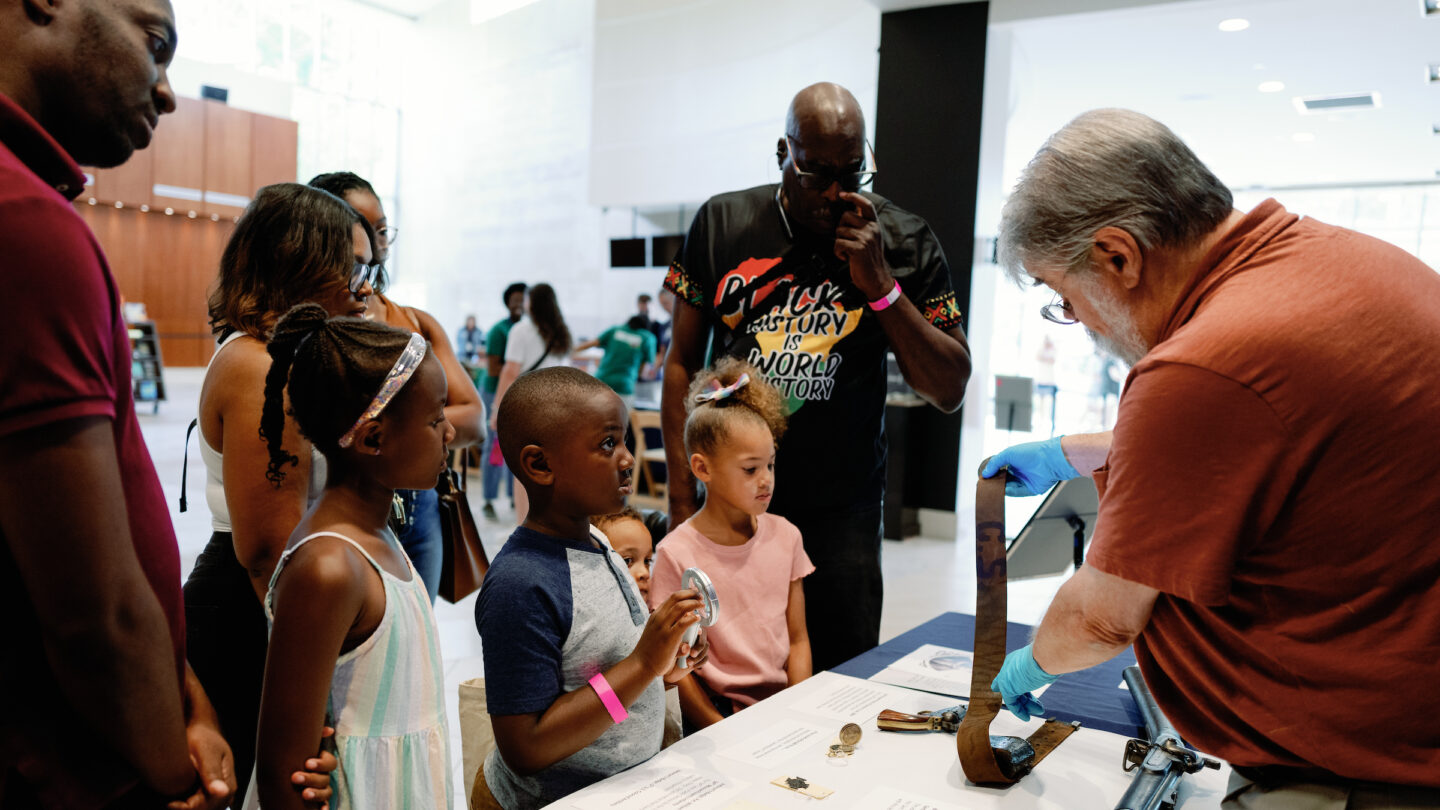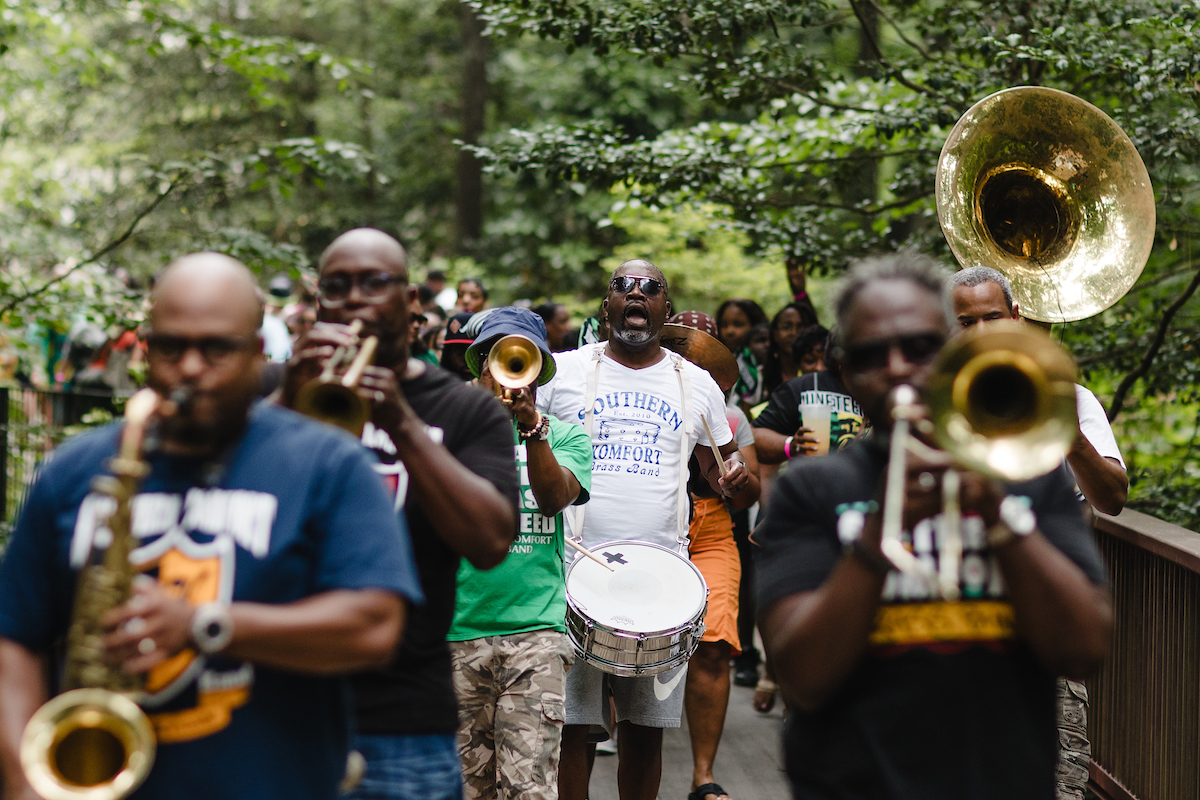
Juneteenth is a celebration marking the end of enslavement in the United States.
Why is Juneteenth a Holiday?
On June 19, 1865, a group of Union troops stopped in Galveston, Texas, to inform enslaved people that the Civil War was over, the Confederacy was defeated, and enslaved people in Texas were free. This occurred two and a half years after the Emancipation Proclamation, as its enforcement was deliberately delayed and resisted.
Today, Juneteenth serves as a holiday to reflect on our nation’s history, commemorate emancipation, and look towards the future impact of Black culture and community. In 2021, President Joe Biden signed the Juneteenth National Independence Day Act into law, making Juneteenth a federal holiday.
Stories of Liberation
-
Juneteenth is a celebration of the end to slavery in the U.S. Lincoln issued the Emancipation Proclamation on Jan. 1, 1863, but few people were immediately freed.
-
The Lost Friends Database compiles ads from the Southwestern Christian Advocate newspaper, where African Americans searched for family members separated by the domestic slave trade. Including ads referencing Atlanta, this database highlights the city’s role in this period.
-
The USCT was comprised of 135 regiments of infantry soldiers. In addition to infantry, the USCT had 13 heavy artillery, six cavalry, and a light artillery regiment. The people of color who were not allowed to enlist, such as women, helped the war effort by being cooks, spies, nurses, and scouts.
-
David Drake was born enslaved circa 1801 on a plantation in South Carolina. Some scholars believe that Drake created more than 40,000 pots in his lifetime.
Digital Exhibits
-
This online exhibition explores the African American struggle for full citizenship and racial equality that unfolded in the 50 years following the Civil War.
-
Explore the rich heritage of African American cuisine, from the enduring traditions of West African dishes to the culinary innovations of enslaved chefs like James Hemings. Learn how iconic foods like cala, macaroni and cheese, and bean pie symbolize resilience, cultural preservation, and the profound impact of Black chefs on American culinary history, celebrated through generations.
-
Black soldiers have served this country since the Revolutionary War and their stories are vital in creating a more complete, more accurate picture of America’s past.
-
American barbecue’s origins are deeply rooted in Black and Indigenous American culinary traditions. Indigenous peoples used open fire pits for cooking for over 10,000 years, and the term “barbecue” evolved from the Taino and West African words “brabacot” and “babbake.” Despite modern associations with suburban men, barbecue spread across the U.S. through migration and has diverse regional styles.
Explore Black Atlanta
-
Story
Founded in 1985, Atlanta-based Ichiban Records played a pivotal role in shaping Southern hip-hop, nurturing iconic artists, and fostering a distinctive sound. The label, led by visionary John Abbey, was a crucible for talent like MC Shy-D and Kilo, blending diverse musical influences. Despite challenges, including a risky partnership with EMI and internal issues, Ichiban’s impact on the music industry, especially in nurturing local talent and promoting diversity, is undeniable. The story is a compelling narrative of ambition, innovation, and the complexities of the music business.
-
Story
Though the story of the Atlanta Crackers is well-known, for years, the story of the Atlanta Black Crackers was largely untold.
-
Story
For more than fifty years, Ethel Mae Matthews worked tirelessly for greater welfare rights for Atlanta’s poor and disabled.
-
Story
For more than 150 years, unwavering young activists have taken up the torch and blazed their own trail through history.
-
Story
In 1962, Mayor Ivan Allen, Jr. ordered the construction of a barricade served to sever the main line connecting the white and Black sections of the Cascade Heights neighborhood.
-
Story
In August 2020, we commemorate the passage of the Nineteenth Amendment which guaranteed American women the right to vote. However, this was not an inclusive victory.
-
Story
After engaging in over 60 years of activism and service to the Atlanta community, prominent Civil Rights leader and Congressman John Lewis has died.
-
We invite you to meet Black Atlantans who made history as educators, artists, legislators, soldiers, and more. This virtual tour offers the full content of the exhibition at Atlanta History Center, and was created by New-York Historical Society.
Take a walking tour of “Sweet Auburn,” a neighborhood John Wesley Dobbs famously called “the richest Negro street in the world.” Beyond its historical financial significance, Sweet Auburn stands as a testament to African American resilience and a pivotal birthplace of the modern Civil Rights movement. This tour was co-curated by Historic Atlanta and Atlanta History Center in 2021.
-
Juneteenth
-
Juneteenth
-
Juneteenth
-
Juneteenth
-
Juneteenth
-
Juneteenth
-
-
Juneteenth
-
Juneteenth
-
Juneteenth
Kid’s Learning Zone
History comes to life in these unique lessons created by our Education team. From brave covert women spies embedded in the Confederacy to the courageous men who fought in the United States Colored Troops—there is sure to be something for everyone in the family to explore.
-
Super Spies uses hand-drawn illustrations, historical photographs, and fantastic storytelling to explore the untold history of Harriet Tubman, Elizabeth Van Lew, and Mary Bowser during the American Civil War.
-
Become a spy just like Harriet Tubman, Elizabeth Van Lew, and Mary Bowser using this cypher to decode the secret message!
-
Explore some of the major battles the United States Colored Troops were engaged in during the American Civil War with our interactive map
-
Discover more history as you explore the 127th United States Colored Troops flag and learn more about the artist behind the banner with this interactive artifact exploration!
Civic Engagement
-
Juneteenth is part of Atlanta History Center’s celebration of the Civic Season, a nationwide initiative encouraging historically-informed civic participation through a two-week activation between Juneteenth and July 4th.
-
Projects & Initiatives
Hundreds of history and civics organizations are coming together to build something together: Made By Us, an initiative to inspire, inform and empower Millennials and Gen Z as they shape our country’s future.
Past Celebrations
Similar Events
-
Honoring the life and legacy of Atlanta’s most well-known civil rights leader.


